
Participating Scholars
(in alphabetical order)
For the most recent publications on the Wadi Arabah by these scholars, go to our Publications page |
 |
Uzi Avner
|
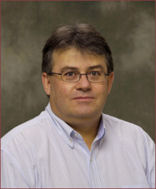 |
Russell Adams Dr. Adams works on the copper mining sites in the Wadi Faynan of the Bronze and Iron Ages.. He is a specialist in ceramic technology, ancient metallurgy and landscape archaeology and studies the impact of technological changes upon the development of social complexity, human environmental adaptation and long-term environmental change.
|
Clinton Bailey Dr Bailey is an anthropologist who has worked extensively with Bedouin in the Negev. He is an expert on bedouin oral traditions and history, and the impact of modern society and technology on bedouin lifestyle.
|
|
John Bartlett Prof.. Bartlett is a biblical scholar, who has done much work on the old testament traditions and narratives in relation to the Wadi Arabah.
|
|
Haim Ben-David Dr. Ben-David specializes in ancient routes in the Wadi Arabah. He has published about the new discovery of the Zoar ascent and has done research on the Roman road from Petra to the Arabah, and on the dating of the incense route from Petra to Gaza.
|
|
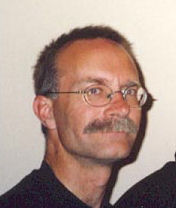 |
Piotr Bienkowski Prof. Bienkowski is an archaeologist, specializing in the archaeology of Edom in the Iron Age. He is also an expert on landscape archaeology, and has compiled the GIS map of sites in the Wadi Arabah.
|
 |
Hendrik Bruins
|
Benjamin Dolinka Dr. Dolinka specializes in the Nabataean and Roman periods in southern Jordan. His current research focuses upon Nabataean cultural continuity, particularly ceramics, after the Roman annexation of the Nabataean kingdom. He has wide field experience in the region, and directed the Rujm Taba Archaeological Project (RTAP), a survey and reconnaissance project on a Nabataean caravanseray / village site that is in immanent danger of destruction.
|
|
Tali Erickson-Gini Dr. Gini is a Roman / Nabataean scholar, with extensive experience in reconnaissance and salvage work. She has published widely on Nabataean and Roman sites in the Negev and Wadi Arabah, and has a special interest in Nabataean trade and trade routes.
|
|
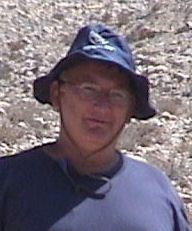 |
Mordechai (Moti) Haiman Dr Haiman has conducted numerous surveys in the desert regions of Israel. He is an expert in desert agricultural systems and their development through time.
|
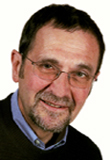 |
Andreas Hauptmann Prof. Hauptmann is an archaeologist who specializes in metallurgy and mineralogy. He has worked extensively in the Wadi Faynan, the copper mining centre of the eastern Wadi Arabah, and has published widely on the subject. He is also an expert on geoscientific archaeometry.
|
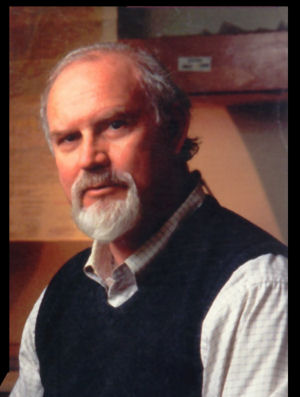 |
Donald O. Henry Prof. Henry is an archaeologist / anthropologist who specializes in the early periods of the Levant. He has done extensive research in the Wadi Arabah and published widely on the Paleolithic sites of the region.
|
Yizhar Hirschfeld †
|
|
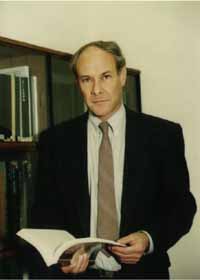 |
Benjamin Isaac Prof. Isaac is a historian specializing in Hellenistic, Roman and Early Byzantine history. His main region of interest, on which he has published widely, is the Near East in general and specifically Palestine. He is also an expert on Jewish history, epigraphy and archaeology in the Roman and Byzantine periods.
|
Michael Jasmin Dr. Jasmin is an expert on trade and trade routes in the Levant. He is involved in research in the Negev, and has published extensively on the oriigins of the incense trade in the Wadi Arabah
|
|
 |
Burton MacDonald Prof. MacDonald has directed several surveys in southern Jordan and the Wadi Arabah. He is an expert on the archaeology, and particularly the settlement history of southern Jordan, and the geography of the region.
|
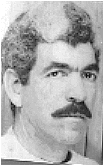 |
Zeev Meshel Dr. Meshel is an archaeologist who specializes in fortresses and water systems in the desert, and their relationship to the development of desert agriculture in various periods. He has published a number of books on the fortresses and water supply systems of the Sinai, the Negev and the Wadi Arabah.
|
Muhammad en-Najjar Dr. en-Najjar is a Jordanian scholar who has worked in most parts of Jordan, as surveyor and excavator. He has excavated extensively in the Wadi Faynan as staff member of the Hirbet Hamra Ifdan project.
|
|
S. Thomas Parker Prof. Parker is an archaeologist who specializes in Roman Jordan. From 1979 to 1989 he directed the Limes Arabicus Project, which investigated the Roman frontier east of the Dead Sea. Since 1994 he has directed the Roman Aqaba Project, the excavation of a Roman port on the Red Sea in southern Jordan.
|
|
Orit Shamir Dr. Shamir is one of the leading authorities on ancient textiles in the Near East. She does research on archaeological remains of textiles, basketry and cordage and has published widely on the subject of textiles and clothing in the ancient world.
|
|
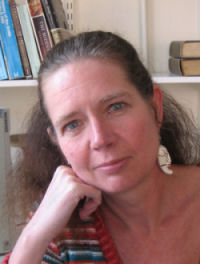 |
Eveline van der Steen Dr. van der Steen is an archaeologist with a special interest in the development of tribal societies in the southern Levant. She has a wide knowledge of tribal societies in southern Jordan from the 18th to 20th century AD, and presently works on a monograph on tribal societies in the region.
|
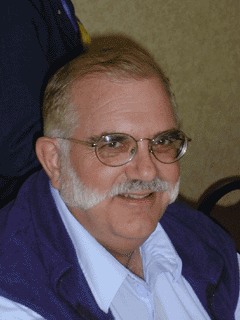 |
Donald Whitcomb Dr. Whitcomb specializes in Islamic Archaeology, and is the director of the Aila excavations, studying the early Islamic occupation of Aqaba. He is an expert on Urbanism and Urbanization, and Interregional trade between Egypt, Iran, Syria and Jordan in the Islamic period.
|
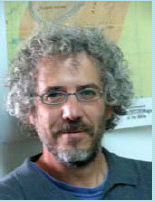 |
Yuval Yekutieli Dr. Yekutieli specializes in the Bronze Ages of the southern Levant.He is one of the leading experts on early connections between Canaan, Transjordan and Egypt, ancient colonialism., landscape archaeology and Rock-Art.
|
|